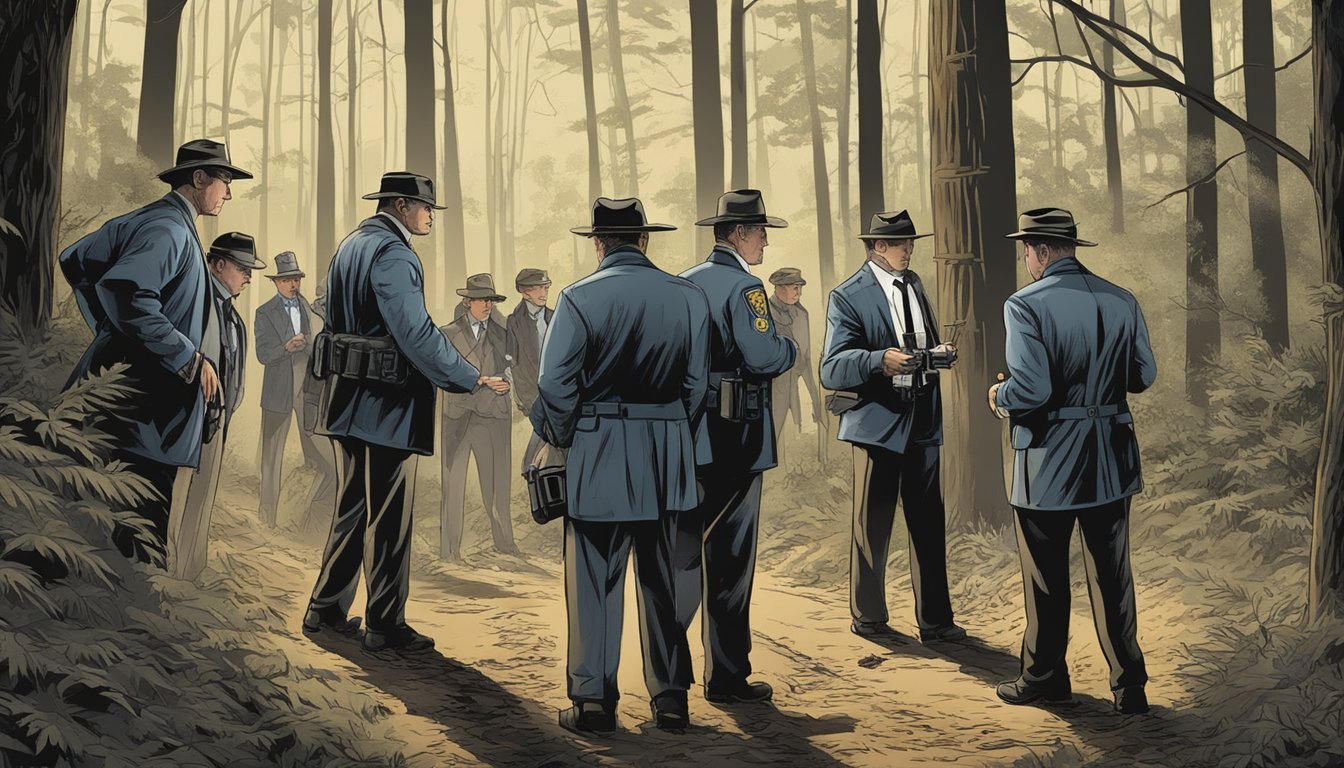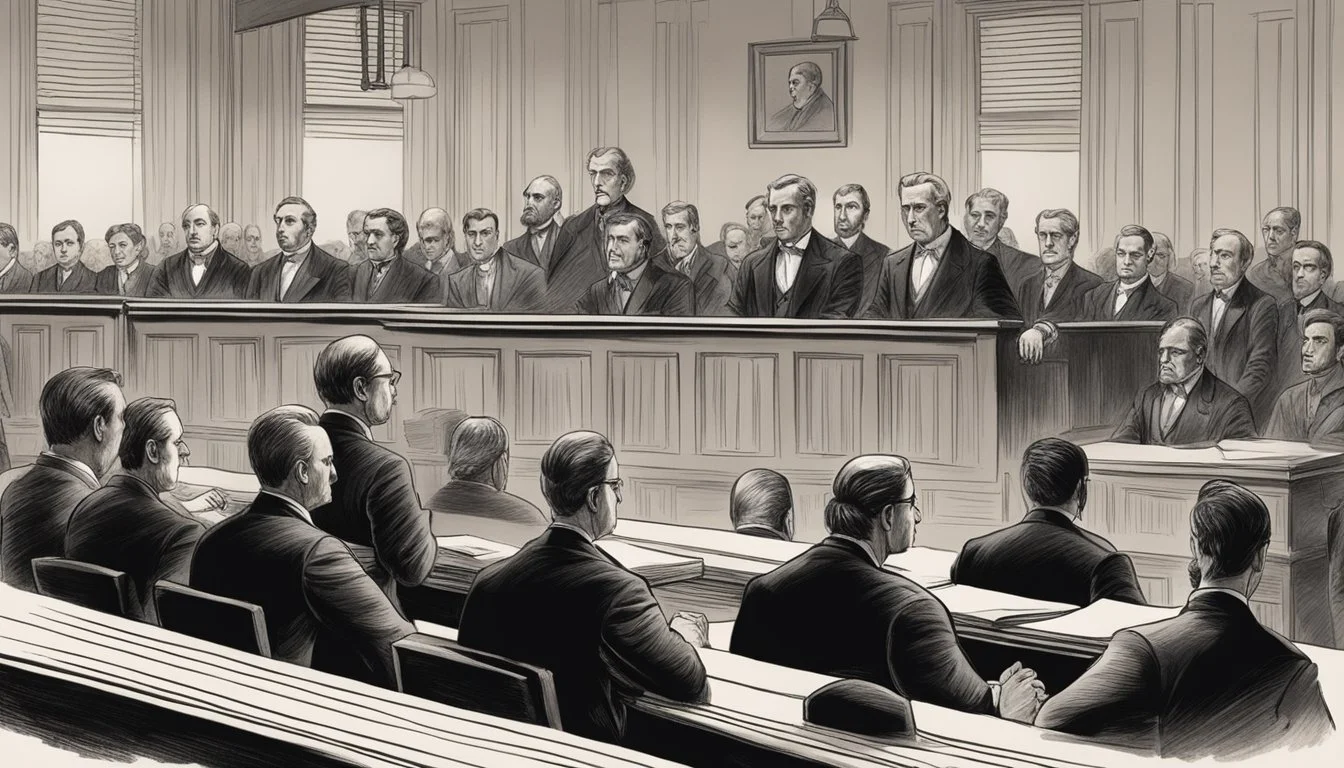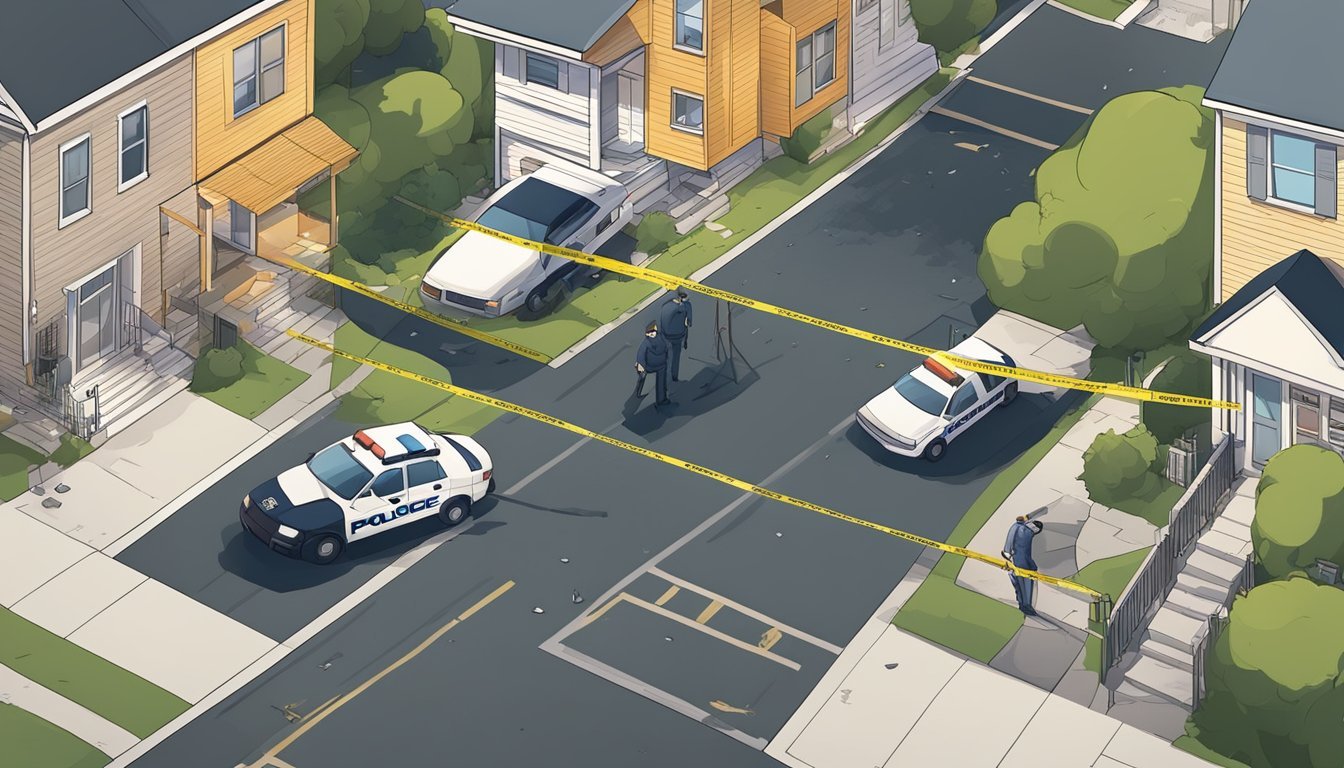The Jesse James Hollywood Case: The Real Events Behind 'Alpha Dog'
A True Crime Saga Revealed
The Jesse James Hollywood case shocked West Hills, Los Angeles in 2000 when 15-year-old Nicholas Markowitz was kidnapped and murdered. This tragic event inspired the 2006 crime drama film "Alpha Dog," directed by Nick Cassavetes and featuring an all-star cast including Justin Timberlake and Sharon Stone.
The real-life incident involved Jesse James Hollywood, who abducted Nicholas Markowitz due to a drug debt owed by the victim's older brother. Hollywood and two associates snatched Markowitz while he was walking along the road. Initially intended as leverage to force repayment, the situation escalated when Hollywood realized the severe legal consequences of kidnapping.
The case garnered significant media attention, leading to its portrayal in "Alpha Dog." The film dramatizes the events surrounding Markowitz's abduction and murder, offering viewers a fictionalized account of the real-life tragedy that unfolded in suburban Los Angeles.
Background of the Case
The Jesse James Hollywood case centered around a drug-related kidnapping and murder in Southern California in 2000. It involved a group of young men from the West Hills area and the Markowitz family, culminating in the tragic death of 15-year-old Nicholas Markowitz.
Profile of Jesse James Hollywood
Jesse James Hollywood grew up in West Hills, a neighborhood in the western San Fernando Valley. As a child, he excelled in reading and baseball, participating in junior baseball leagues. By age 20, Hollywood had become a local drug dealer in the area.
He developed a reputation for violence and intimidation among his peers. Hollywood's drug business brought him into conflict with Ben Markowitz, who owed him money for drugs. This debt would ultimately lead to the kidnapping of Ben's half-brother Nicholas.
The Markowitz Family
Nicholas Markowitz was a 15-year-old teenager living in West Hills with his family. His half-brother Ben had become involved in the local drug scene, accumulating debts to dealers like Jesse James Hollywood.
On August 6, 2000, Nicholas was walking along the road when he was abducted by Hollywood and two accomplices. The kidnappers initially planned to use Nicholas as leverage to force Ben to repay his drug debt.
Susan Markowitz, Nicholas's mother, was devastated by her son's disappearance and subsequent murder. The tragic events would later inspire her to write a book about her experiences.
West Hills Connections
West Hills, a suburban neighborhood in Los Angeles, served as the backdrop for much of the case. Many of the individuals involved, including Jesse James Hollywood and the Markowitz brothers, had connections to the area.
The tight-knit community was shocked by the violent crime that unfolded in their midst. Local baseball fields and schools that Hollywood and others had attended became part of the investigation's focus.
The case highlighted the presence of drug-related criminal activity in seemingly quiet suburban neighborhoods. It also exposed the dangerous consequences of youth involvement in drug dealing and associated violence.
The Kidnapping
The kidnapping of Nicholas Markowitz was a pivotal event in the Jesse James Hollywood case. It set off a chain of events that would ultimately lead to tragedy.
Initial Abduction Events
On August 6, 2000, Jesse James Hollywood and two associates, Jesse Rugge and William Skidmore, spotted 15-year-old Nicholas Markowitz walking along a street in West Hills, California. The group quickly seized Nicholas, forcing him into a van. This abduction was not random - it was retaliation for a drug debt owed by Nicholas's half-brother, Ben Markowitz, to Hollywood.
The kidnappers drove Nicholas to Santa Barbara, about 100 miles away from his home. During the drive, they assured Nicholas he would be released soon, leading him to believe the situation was not as serious as it truly was.
Markowitz's Captivity
Nicholas's captivity lasted for several days. He was held at various locations in Santa Barbara, including the homes of Jesse Rugge and another associate. Surprisingly, Nicholas was not kept under constant guard. He was even allowed to socialize with other teenagers, attend parties, and use drugs during his captivity.
Many who interacted with Nicholas during this time were unaware he had been kidnapped. Some witnesses later reported that Nicholas seemed relaxed and did not appear to be in distress. This false sense of security likely contributed to Nicholas's decision not to attempt an escape when opportunities arose.
Key Individuals Involved
Several people played crucial roles in Nicholas's kidnapping:
Jesse James Hollywood: The mastermind behind the abduction
Jesse Rugge: One of the primary kidnappers and hosts during captivity
William Skidmore: Assisted in the initial abduction
Ryan Hoyt: Later brought in by Hollywood to "resolve" the situation
Ben Markowitz: Nicholas's half-brother whose debt sparked the kidnapping
These individuals' actions and decisions during the days following the abduction would ultimately seal Nicholas's fate. Hollywood, fearing severe consequences for the kidnapping, made the fateful choice to eliminate the only witness who could testify against him.
The Crime
The murder of Nicholas Markowitz in August 2000 shocked the community and led to a high-profile manhunt. The case involved drug dealer Jesse James Hollywood and his associates, culminating in a tragic killing in the Santa Ynez Mountains.
The Murder of Nicholas Markowitz
Jesse James Hollywood and two accomplices kidnapped 15-year-old Nicholas Markowitz on August 6, 2000. The abduction was linked to a drug debt owed by Markowitz's half-brother. Initially held at various locations, Markowitz was taken to the Santa Ynez Mountains on August 8.
Ryan Hoyt, one of Hollywood's associates, received orders to kill Markowitz. Hoyt shot the teenager multiple times and buried him in a shallow grave. The murder was an attempt to eliminate evidence of the kidnapping, which Hollywood feared could lead to serious prison time.
Discovery of the Crime
On August 12, 2000, hikers in the Santa Ynez Mountains stumbled upon a disturbing sight. They discovered Nicholas Markowitz's body in a shallow grave off West Camino Cielo. The grim find quickly led to a police investigation.
Authorities soon connected the murder to Jesse James Hollywood and his drug-dealing operation. The discovery sparked an extensive manhunt for Hollywood and his associates. As details of the crime emerged, the case gained significant media attention, eventually inspiring the movie "Alpha Dog."
Investigation and Manhunt
The investigation into Nicholas Markowitz's murder led to an intense manhunt for Jesse James Hollywood. Law enforcement agencies worked diligently to gather evidence and track down the fugitive, involving local police, the FBI, and international authorities.
Gathering Evidence
Investigators quickly identified Jesse James Hollywood as the prime suspect in Nicholas Markowitz's murder. They collected crucial evidence from the crime scene, including DNA samples and witness statements. Surveillance footage from nearby businesses provided valuable information about the abduction and subsequent events.
Police interviewed Hollywood's associates and family members, piecing together the timeline of events. They discovered that Hollywood had fled Los Angeles shortly after the murder, triggering a widespread search.
FBI's Involvement
The FBI joined the investigation, elevating the case to a national priority. They added Jesse James Hollywood to their Most Wanted List, increasing public awareness and expanding the search efforts.
FBI agents conducted extensive interviews and analyzed financial records to trace Hollywood's movements. They coordinated with local law enforcement agencies across the country, following up on potential sightings and tips.
The bureau also liaised with international law enforcement partners, suspecting that Hollywood might have fled the United States.
Tracking Down Hollywood
As the manhunt intensified, authorities received credible information suggesting Hollywood had escaped to Brazil. The FBI worked closely with Brazilian police to locate and apprehend the fugitive.
In March 2005, nearly five years after the murder, law enforcement finally caught up with Hollywood in a small town near Rio de Janeiro. Brazilian authorities arrested him and began extradition proceedings.
The successful capture marked the end of a long and complex international manhunt, bringing Hollywood back to face justice in the United States for his alleged role in Nicholas Markowitz's murder.
The Trials
The Jesse James Hollywood case involved multiple trials for those implicated in Nicholas Markowitz's kidnapping and murder. Key defendants faced severe charges and penalties.
Court Proceedings
Jesse James Hollywood's trial began in May 2009, nine years after the crime. He faced first-degree murder and kidnapping charges. The prosecution argued Hollywood ordered the killing, while the defense claimed he had no direct involvement.
Ryan Hoyt's trial occurred in November 2001. As the alleged shooter, he faced capital murder charges. The prosecution presented evidence linking Hoyt to the murder weapon and crime scene.
Other defendants, including Jesse Rugge and William Skidmore, were tried separately for their roles in the kidnapping and murder plot.
Verdicts and Sentencing
The jury found Jesse James Hollywood guilty of first-degree murder and kidnapping for ransom. He received a sentence of life in prison without the possibility of parole.
Ryan Hoyt was convicted of first-degree murder with special circumstances. The jury sentenced him to death. He remains on death row at San Quentin State Prison.
Jesse Rugge was convicted of kidnapping and sentenced to life in prison with the possibility of parole. William Skidmore pleaded guilty to kidnapping and received a 9-year prison term.
The trials concluded with all major defendants receiving significant prison sentences, bringing a measure of justice for Nicholas Markowitz's family.
'Alpha Dog' Film Adaptation
The 2006 crime drama "Alpha Dog" brought the Jesse James Hollywood case to the big screen. Directed by Nick Cassavetes, the film featured a star-studded cast and aimed to recreate the events surrounding Nicholas Markowitz's kidnapping and murder.
Development of the Movie
Nick Cassavetes wrote and directed "Alpha Dog" based on the real-life case. The film entered production while Jesse James Hollywood was still a fugitive, complicating the legal aspects of its creation. Cassavetes conducted extensive research, interviewing individuals connected to the case and reviewing court documents.
The movie's development faced challenges due to the ongoing legal proceedings. Hollywood's capture in 2005 led to further script revisions to incorporate new information. Cassavetes aimed to present a balanced portrayal of the events, focusing on the moral choices and consequences faced by the characters.
Comparison with the Real Events
"Alpha Dog" closely follows the general timeline of the Nicholas Markowitz kidnapping and murder. The film changes names and some details for legal reasons. Johnny Truelove, played by Emile Hirsch, represents Jesse James Hollywood.
Key events portrayed include the initial kidnapping, the victim's time in captivity, and the eventual decision to murder him. The movie accurately depicts the party atmosphere and the victim's apparent freedom during his captivity.
Some differences exist between the film and reality. The movie compresses the timeline and alters certain character relationships for dramatic effect. It also speculates on some conversations and motivations that cannot be verified from the actual case.
Casting and Character Analysis
The film features an ensemble cast of established and rising stars. Emile Hirsch portrays Johnny Truelove (Jesse James Hollywood), capturing the character's charisma and volatility. Justin Timberlake plays Frankie Ballenbacher, based on Jesse Rugge, in a performance that garnered critical praise.
Anton Yelchin takes on the role of Zack Mazursky (Nicholas Markowitz), conveying the victim's vulnerability and naivety. Ben Foster's portrayal of Jake Mazursky (Ben Markowitz) is notably intense, highlighting the character's drug addiction and volatile nature.
Sharon Stone and Bruce Willis appear in supporting roles as Zack's parents, adding star power to the production. The casting choices aim to balance Hollywood appeal with authentic portrayals of the real-life individuals involved in the case.
Aftermath and Legacy
The Jesse James Hollywood case left a lasting impact on the families involved and sparked significant media attention. It highlighted the devastating consequences of drug-related violence and raised questions about justice and rehabilitation.
Impact on the Families
Susan Markowitz, Nicholas's mother, struggled with deep grief and attempted suicide multiple times after her son's murder. She channeled her pain into advocacy, writing the book "My Stolen Son" to share Nicholas's story. The Markowitz family worked to keep Nicholas's memory alive through various charitable efforts.
Jesse James Hollywood's family faced public scrutiny and legal challenges. His father, Jack Hollywood, was convicted of manufacturing GHB and received a 4-year prison sentence in 2005.
The families of the other defendants also grappled with the aftermath, dealing with lengthy legal proceedings and the emotional toll of their loved ones' involvement in the crime.
Cultural and Media Impact
The case gained national attention and inspired several media adaptations. The most notable was the 2006 crime drama film "Alpha Dog," directed by Nick Cassavetes and starring Emile Hirsch as Johnny Truelove, a character based on Jesse James Hollywood.
"Alpha Dog" brought renewed interest to the case and sparked discussions about youth violence and drug culture. The film's release complicated legal proceedings, with Hollywood's defense team arguing it could prejudice potential jurors.
Television shows like "48 Hours" and "Dateline NBC" featured segments on the case, further cementing its place in true crime culture. These media portrayals helped maintain public awareness of Nicholas Markowitz's story years after the events took place.







